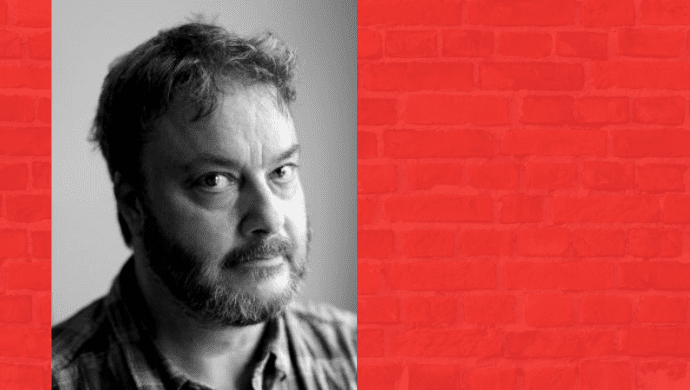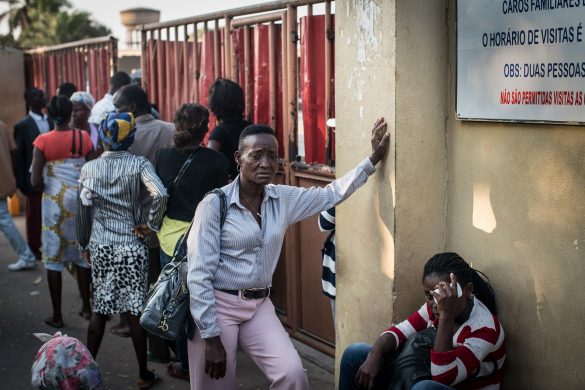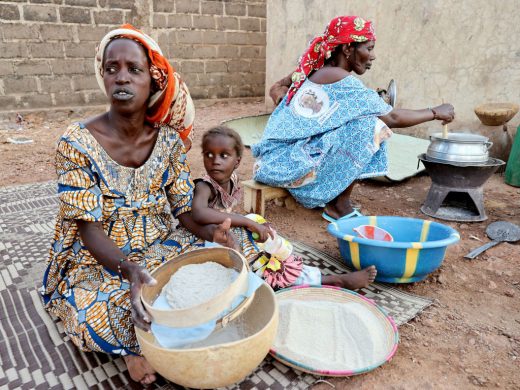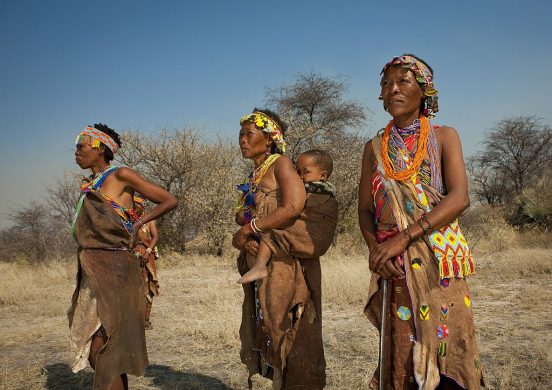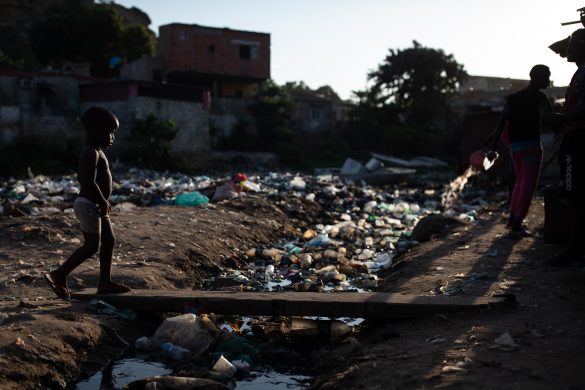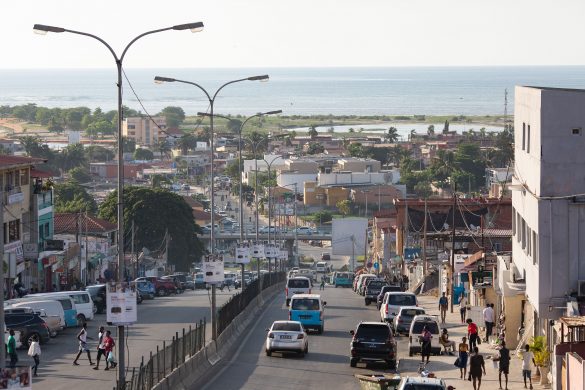UNICEF, WHO og Bill & Melinda Gates Foundation roser i en fælles pressemeddelse Angolas regering for en aktiv indsats for at udrydde polio.
LUANDA, 25 January 2011: As their visit to Angola came to a close today, Anthony Lake, UNICEF Executive Director, Dr. Tachi Yamada, president of the Global Health Program of the Bill & Melinda Gates Foundation, and Dr. Matshidiso Moeti, Assistant Regional Director for WHO Africa, welcomed commitments by the government and partners to rid the country of the scourge of polio. Dr. Yamada, Dr. Moeti and Mr. Lake also renewed their own commitment to achieving this critical goal.
In a meeting with the delegation Monday, Angolan President Jose Eduardo dos Santos reaffirmed the government´s and his personal commitment to eliminating polio.
He agreed to spearhead the country’s 2011 vaccination campaigns and ensure that they are conducted with determination and efficiency. Later at a special meeting of the National Council on Children, this pledge was echoed by Vice Ministers, Vice Governors and civil society organizations, who agreed they would work across the country to improve vaccination coverage.
“Every child has the right to be vaccinated against this evil disease,” said Anthony Lake, UNICEF Executive Director. “This renewed partnership in Angola can help us to achieve a historic victory and rid the world of polio once and for all.”
At a donor’s pledging roundtable, private sector companies and bilateral partners agreed to contribute to the 24.5 million us dollars shortfall by pledging additional funds, logistical support and technical expertise. A total of 70 million us dollars is needed this year for the national immunization plan.
“Extraordinary progress in Nigeria and India – each has reduced cases by approximately 95 per cent last year – has given us confidence in the global fight to end polio,” said Dr. Yamada. “The spotlight has turned to Angola, and we must all be held accountable for success here as we seek to rid the world of a terrible disease.”
In a meeting, the Governor of Luanda also pledged his support for reducing the burden in his city, which has experienced the largest number of polio cases in recent years.
During a field visit to Cacuaco, one of Luanda’s large urban communities, the delegation met with a family whose daughter had been paralyzed by polio. They visited a health clinic that provides services to almost 40.000 people and met with community health volunteers who play a vital role in educating communities about the dangers of polio and other vaccine-preventable diseases, and also serving as vaccinators during campaigns.
„The Government of Angola is clear about what needs to be done to eliminate polio in our country and stop the further spread to our neighbors,‟ said Dr. Jose Vieira Dias Van- Dunem, the Minister of Health. „We need the commitment of families and all sectors of society to work together to mount a comprehensive plan that includes vaccination campaigns, stronger routine immunization, and better disease surveillance to quickly detect new cases.‟
Fakta om polio i Angola
Angola, which eliminated polio for several years, has been plagued by the reemergence of this crippling disease since May 2005. The disease has since spread from Angola to Namibia (2006), the Democratic Republic of Congo (2006, 2008 and 2010), and the Republic of Congo (2010). While good progress has been made since the war ended in 2002, Angola is still rebuilding its primary health care system and investing in infrastructure and human capital. The country still faces many challenges in its efforts to eliminate polio and reach all children. Partners have agreed to work to support the Government in strengthening surveillance systems to improve the country’s ability to respond to new outbreaks, training more health workers and increasing routine immunization.




